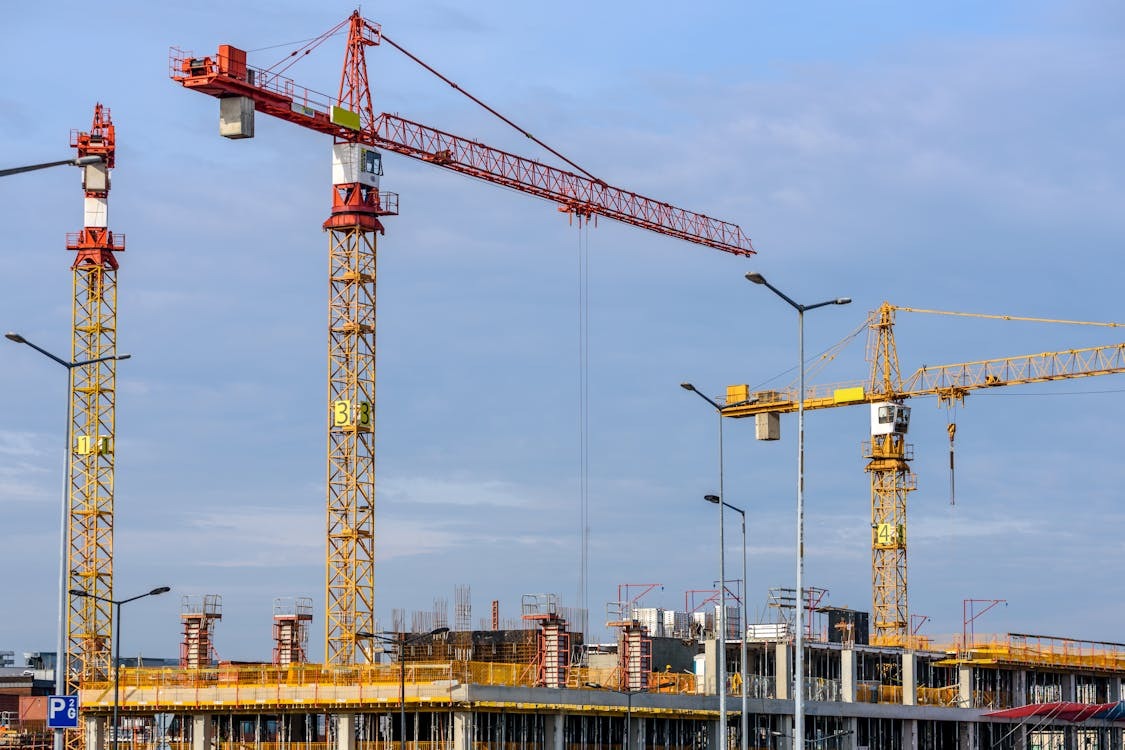India’s sluggish housing market may deteriorate further if the central bank hikes rates

India’s housing market has struggled for growth in recent years and if the central bank raises interest rates this week, there could be a further slowdown in the sector, experts told CNBC.
A rate hike would “definitely have a negative impact” on the housing market outlook, Ramesh Nair, CEO and country head at real estate services firm JLL India, told CNBC.
The Reserve Bank of India (RBI) is widely expected to raise the repo rate — or the rate at which the central bank lends to commercial banks — by 25 basis points to 6.75 percent on Friday.
Already, India is facing a challenging global environment: U.S. interest rates are rising, trade tensions are escalating and high oil prices could worsen the external balances for Asia’s third largest economy.
Domestically, India’s volatile financial markets have kept the rupee at record lows, according to a note from Radhika Rao, an economist at Singapore’s DBS Bank.
Sluggish demand for homes
Housing sector demand in the world’s fastest-growing major economy has slowed over the past few years, according to Nair.
“The biggest challenge I’ve seen in the (housing) market today is affordability,” Nair told CNBC by phone. The second challenge, he said, was the “massive confusion” last year around the Goods and Services Tax (GST) and the real estate regulatory act.
Unsold inventory and the so-called demonetization program — which saw the government remove 500 and 1,000 rupee bank notes from the financial system two years ago — also contributed to the slowdown, he added.India introduced the Real Estate (Regulation and Development) Act in 2016 that was aimed at protecting home-buyers and ensuring developers complete housing projects on time.
Delayed or unfinished housing projects have been a significant part of buyers’ discontent, according to local media, which reported that in August that nearly half a million housing units worth 4.64 trillion rupees ($63.5 billion) were delayed in seven major cities around the country. That was despite the implementation of the real estate law.Some experts suggested that bureaucratic red tape around the country have prevented those new rules from being effective.A combination of high interest rates between 2012 and 2016, as well as significant increases in property prices in major cities, made housing less affordable for buyers, Rajiv Biswas, chief economist for Asia Pacific at IHS Markit, told CNBC by email.
“While there has been some improvement in the Indian residential real estate market during (the first half of) 2018 due to improving economic growth, recent RBI rate hikes have already increased borrowing costs,” Biswas said.
Adding further rate hikes would “be likely to dampen sentiment in the residential property sector, particularly for highly leveraged borrowers,” Biswas said. A report from real estate consultancy Knight Frank showed that between January and June this year, sales in housing units rose only 3 percent compared to a year earlier, despite the government’s push for more transparency through measures such as demonetization, GST and the real estate bill. Liquidity concerns for developers Shishir Baijal, chairman and managing director of Knight Frank India, also said that higher interest rates would not help to create the environment needed to improve demand in the housing market, which constitutes the majority of the country’s real estate sector. “It won’t be the fillip which is required for the housing sector to pick up. You’re already talking about a sector which has seen, perhaps, its longest downturn in recent memory,” Baijal told CNBC. “I just hope it’s 25 basis points and no further.” The average home-buyer could feel the pinch from higher interest rates, experts say. The thinking is that as the RBI raises interest rates, the country’s lenders could also charge more interest on the money it lends to India’s borrowers, such as home-buyers. Existing borrowers may have to pay more for their existing loans. That would impact buyers mostly in the mid-to-lower tier housing market since their home purchases are mostly financed through bank loans, according to Baijal. He explained that in recent months, demand for lower-priced residential properties showed a greater demand than luxury or premium housing. But even with nominal prices coming down, it did not ignite any substantial uptick in demand, he added. However, some experts said the long-term impact of a possible rate hike could be limited even if consumer sentiment takes an immediate hit.
Developers need to get clear signals there would be sufficient liquidity in the market either through the non-banking financial companies or the housing finance companies, he said. That’s because those developers, under the new real estate regulatory act, cannot afford delays in their projects, Baijal explained.
Developers with projects that are partially completed would also feel the pinch of higher interest rates, said Vivek Dahiya, the managing director for North India at Cushman & Wakefield, a real estate services company. Overall, Baijal said, Knight Frank India expects another four to six quarters before the housing market makes a turnaround in demand.
Experts suggest that the stability of India’s financial institutions are a worry, coming to head especially in the last few weeks with the near-collapse of a non-bank lender called Infrastructure Leasing and Financial Services.



















































































